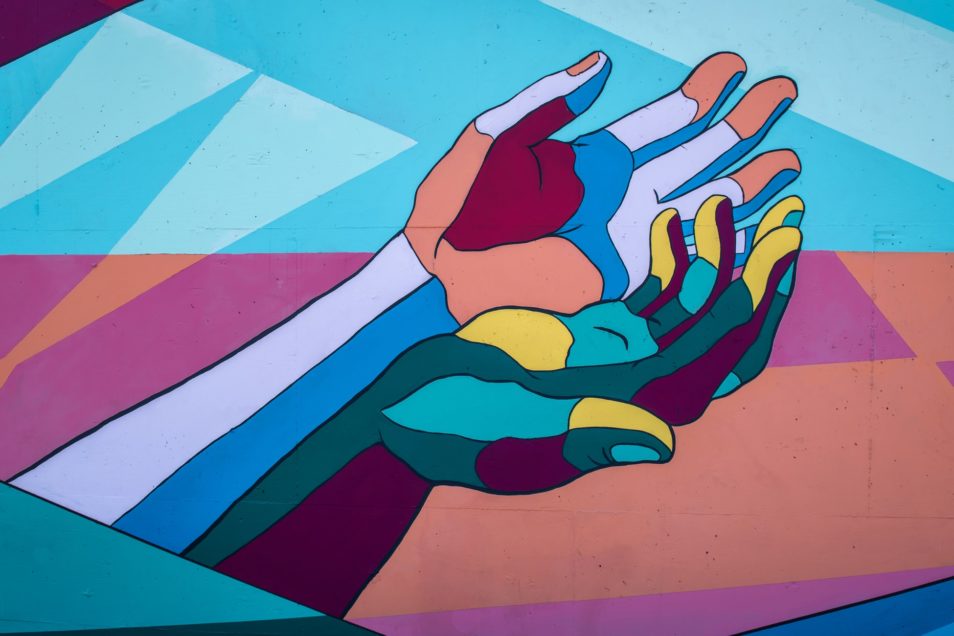
Self-isolating doesn’t mean you’re alone. Here’s how you can work together even while staying apart.
It’s hard to talk about looking after your mental health without sounding like every second social media post. But it is important because we want to help you build resilience to assist with these complex situations.
We know the uncertainty of this time is not helping anyone. In reality, we’ve experienced a few unprecedented events this year already. We asked Fiona Martin, a registered psychologist in our Health and Wellbeing team, to share her professional advice on looking after your mental health if you’re working from home, self-isolating or just trying to maintain a normal routine.
We’re all in this together
Firstly, this is happening to everyone. This is a very unifying experience. If you’re feeling upset – know that others are feeling this too. Be kind and patient with your family, friends and peers. Not only are we dealing with this event but we’re navigating the rest of our lives at the same time.
Recognise what works for you
Does leaning into the information help you make sense of the chaos? Or do you need to scale back on social media or news bulletins? Take a moment to understand what feels right for you. You don’t need to know everything about the current situation. Be clear with your family, friends or peers when something isn’t working. Once you understand what works for you, set your boundaries.
Short-term: Speak up with simple things like:
- With everything going on, I’m not shaking hands right now
- I’m choosing to stay home and limit my physical contact
- How about we Skype or FaceTime instead of catching up?
Long-term: Boundaries are not restrictions– they are a form of communication. They allow others to understand us better. They are important in every type of relationship, even our relationship with social media. Know what you need and communicate it clearly.
Stay connected to your community
When we work from home or are self-isolating, we start to feel disconnected from our peers or other important relationships in our lives. It can happen very slowly so make a plan to stay connected today. There is a range of great virtual working systems available to workplaces. Call your manager for a quick check-in each morning, set up a coffee date (physical or virtual) with a colleague or join some fun groups on the staff intranet. Staying connected doesn’t have to be an arduous task – think small!
Short-term: Outside of work, lean on your usual community. Everyone is in the same boat right now, so reach out and say hi. Across social channels we’re seeing people connect in creative ways to hold virtual dance parties, dinner dates, movie nights and book clubs. There are lots of innovative options – find what works for you.
Long-term: Set up a group chat with your family. Make some channels rules like ‘no messaging after 10pm’ or ‘COVID-19 free-zone’ and enjoy the informal conversation that will evolve. You’ll discover a new family dynamic and connection.
Create a routine and build on it
Things can be very disruptive if you and your family are out of routine. You might have children at home, extra equipment around, or be unable to go to the gym. Many people vouch for a routine to minimise feeling anxious. Your routine will consist of very ‘ordinary’ things. Showering, brushing your teeth and eating breakfast are all part of your routine.
Short-term: Adjust it slightly to accommodate for social distancing but try to keep a daily routine.
Long-term: We all want to build better habits. One way is to start including them into your daily routine. Always put bread in the toaster in the morning? While it cooks, drink two glasses of water. Build small healthy habits into your existing routine.
Use available support services
The current situation can be challenging. There is support available:
- Beyond Blue on 1300 22 46 36
- Lifeline on 13 11 14
- Discuss your concerns with your GP, friends or family.
Beyond Blue recognises and understands the feelings of anxiety, distress and concern many people may be experiencing in relation to self-isolating and coronavirus (COVID-19) and offers a range of wellbeing advice.
The Department of Health’s Head to Health website provides links to trusted Australian online and phone supports, resources and treatment options.

